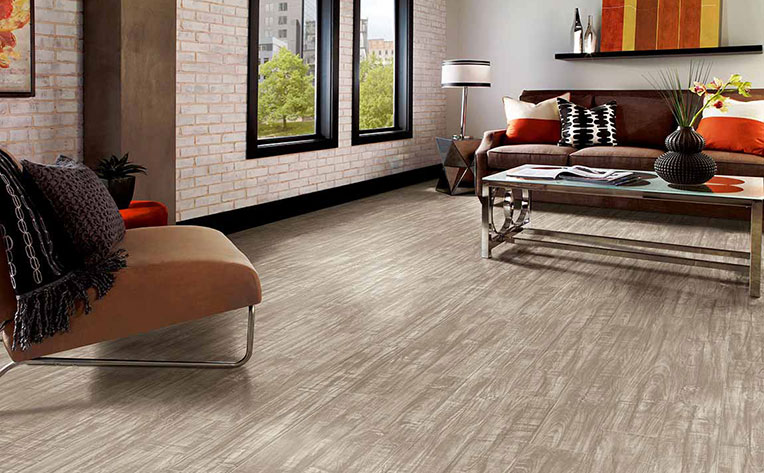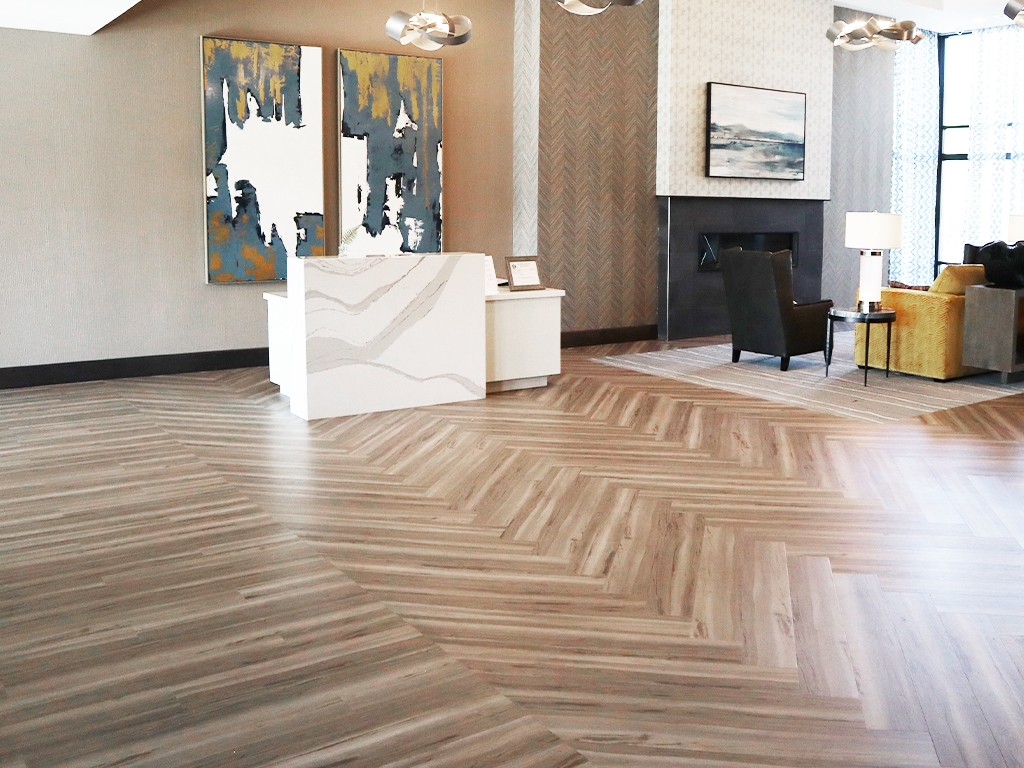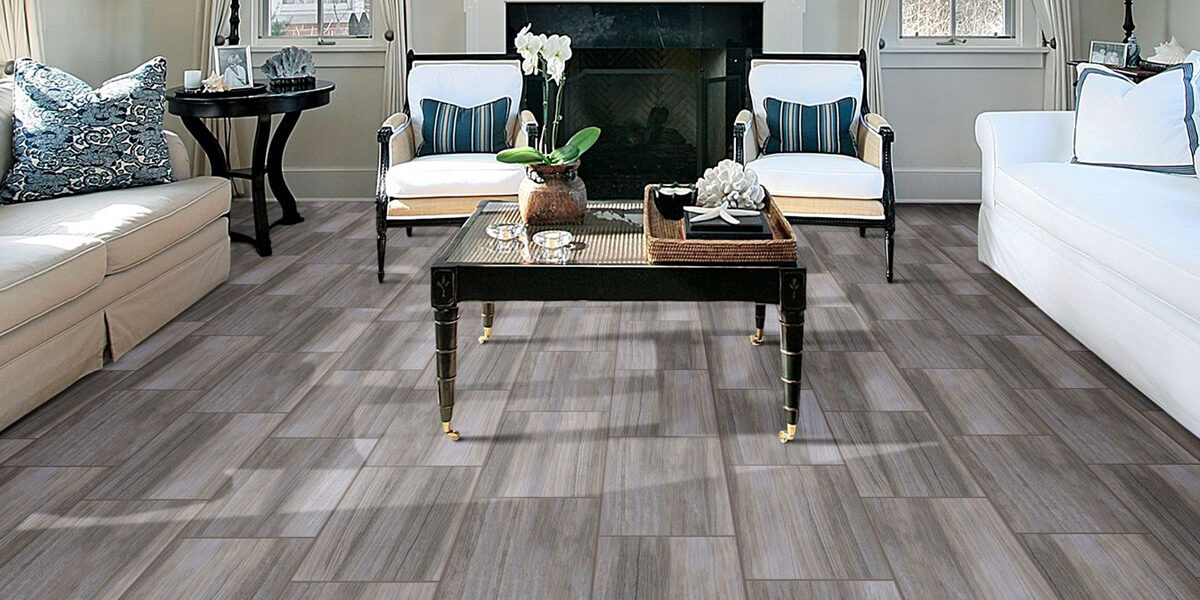Vinyl flooring is a versatile and resilient flooring option made primarily from polyvinyl chloride (PVC) and other additives. It comes in various forms, including vinyl sheet flooring, vinyl tile flooring, and vinyl plank flooring, each offering distinct benefits. Known for its durability, affordability, and ease of maintenance, vinyl flooring is a popular choice for both residential and commercial spaces. The material typically includes a wear layer that enhances resistance to scratches and stains, making it suitable for high-traffic areas. With water-resistant or waterproof properties, depending on the type, vinyl flooring is particularly practical for spaces prone to moisture, such as kitchens and bathrooms. Its wide range of styles, colors, and installation methods provides creative flexibility, making vinyl flooring a versatile and cost-effective solution for diverse design preferences and practical needs.

Vinyl sheet flooring is a versatile and cost-effective flooring option that comes in large, continuous sheets, providing a seamless and resilient surface for various spaces. Composed of multiple layers, including a wear layer for durability and resistance to scratches, stains, and spills, vinyl sheet flooring offers practicality and easy maintenance. Its installation typically involves rolling out the sheet and securing it to the subfloor, minimizing seams for a cohesive look. This type of flooring is known for its water-resistant properties, making it suitable for areas prone to moisture, such as kitchens and bathrooms. Vinyl sheet flooring comes in a diverse range of designs, colors, and patterns, allowing for creative customization to match different interior styles. Its affordability and versatility make it a popular choice for both residential and commercial settings.
Vinyl tile flooring is a popular and versatile flooring option known for its durability, ease of installation, and diverse design possibilities. Comprising individual tiles that mimic the appearance of materials like stone, ceramic, or wood, vinyl tile flooring offers a cost-effective alternative with numerous advantages. The tiles often feature a wear layer that enhances resistance to scratches and stains, ensuring long-lasting performance. Vinyl tiles are available in various sizes, styles, and colors, providing homeowners and designers with creative flexibility. Installation methods include peel-and-stick, click-lock systems, and traditional glue-down applications, making them suitable for different DIY skill levels. Known for their water-resistant properties, vinyl tiles are commonly used in kitchens, bathrooms, and other areas prone to moisture. With its combination of aesthetics, durability, and affordability, vinyl tile flooring remains a popular choice for a wide range of residential and commercial applications.


Vinyl plank flooring is a versatile and popular flooring option known for its realistic wood-like appearance, durability, and ease of maintenance. Comprising individual planks that replicate the look of hardwood, vinyl plank flooring offers a cost-effective alternative with several practical advantages. Each plank typically features multiple layers, including a wear layer for resistance against scratches, stains, and fading. The planks can come in various sizes, styles, and colors, providing a wide range of design options for homeowners and designers. Installation methods include click-lock systems, glue-down applications, and loose-lay formats, offering flexibility in choosing the most suitable method for the specific space. Vinyl plank flooring is water-resistant, making it suitable for areas prone to moisture, such as kitchens and bathrooms. Its combination of aesthetic appeal, durability, and affordability makes it a popular choice for both residential and commercial spaces.
Powered by Updogweb